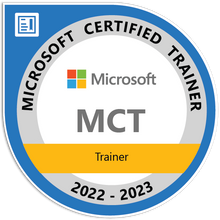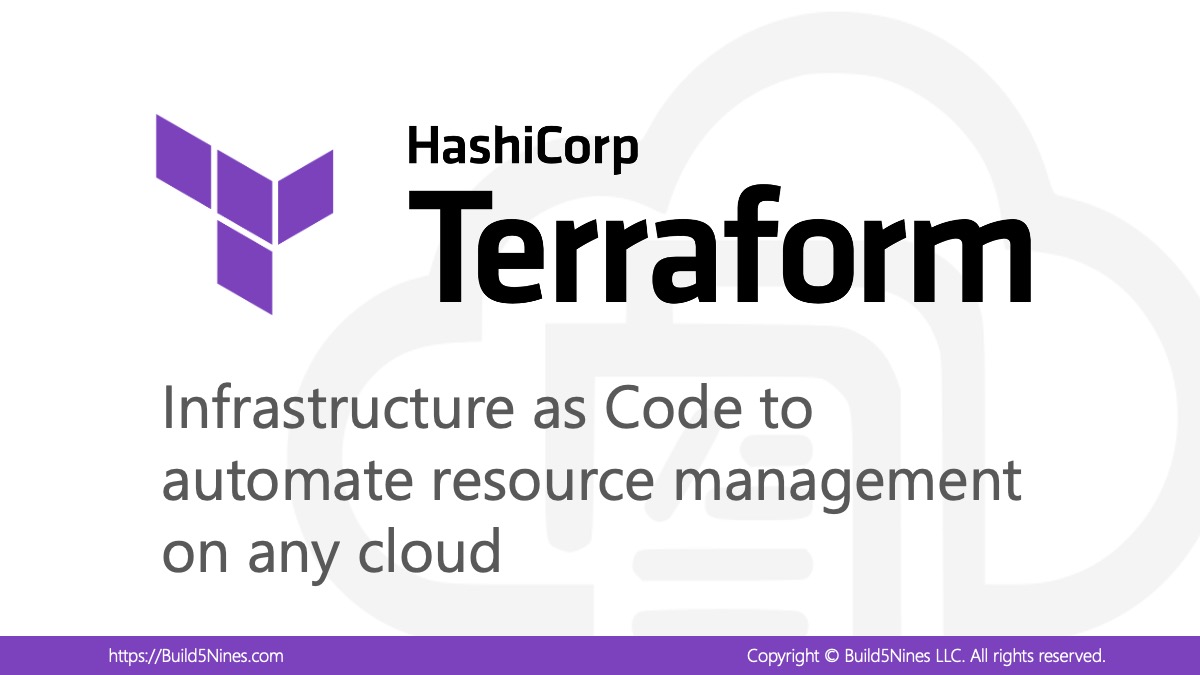Embedded within Microsoft’s announcement of retiring ALL of the MCSE, MCSD, and MCSA certifications (and their associated exams) is the fact that certifications for Windows Server and SQL Server products are gone. As the older technology-based certifications are being retired on June 30, 2020, in favor of the new role-based certifications, Microsoft is ushering in a change that completely eliminates the ability for IT Professionals to get certified in their flagship operating system and database engine products. All of this seems to be done in favor of Microsoft Azure; as the cloud is rapidly taking over IT.
UPDATE: Due to the Coronavirus (COVID-19) pandemic Microsoft has extended the retirement of the MCSA, MCSD, and MCSE certifications to January 31, 2021.
Certainly there’s a replacement, right? Um… No…
Certainly there’s new Windows Server and SQL Server exams coming soon? Um… No…
Yeah, you read that right. After all, nobody cares about on-premises servers, virtual machines, and operating systems anymore. We’re all 100% in the cloud, and never going back. Right?….
Well, not that either. Of course, there are still on-premises servers running Windows Server and SQL Server still. The vast majority of enterprises still rely on Windows Server to keep the business going, and SQL Server in many scenarios as well. As such, these same enterprises rely on having skilled personnel that are able to manage these servers too.
So, wouldn’t you think having certifications that help enterprises ensure they have the personnel with the skills needed to keep them in business? Well, it seems Microsoft may not fully agree with this statement. As focus is moving towards the rapidly growing Microsoft Azure cloud, they would likely prefer you run all of your workloads in Microsoft Azure. That’s why they have many different cloud-based, role-based certification paths to choose from.
However, if you look at what’s needed to integrate an enterprise with the cloud, there are many on-premises components necessary. In order to have a single sign-on environment secured and integrated with Microsoft Azure, you will need to have Windows Server running Windows Active Directory (AD) on-premises that gets synchronized with Azure Active Directory (Azure AD) in the cloud. In order to run this extremely core workload on premises you do need to have personnel with the skills necessary to manage that Windows Server and Active Directory installation. This is in addition to the Microsoft Azure skills needed to setup and maintain that cloud integration too.

Now, I know Microsoft’s announcement for the MCSE, MCSD, and MCSA certifications being retired does mention that the “Windows Server 2019 and SQL Server 2019 content will be included in role-based certifications on an as-needed basis for certain job roles in Azure Apps & Infrastructure and Data & AI solution areas.” Although, the current batch of role-based certifications are cloud-focused as they do NOT actually cover any Windows Server or SQL Server information for running these on-premises. They are cloud certifications covering Microsoft Azure cloud capabilities.
So in summary, Microsoft is retiring the old technology-based MCSE, MCSD, and MCSA certifications without offering any type of alternatives at this time. And, they haven’t announced any timelines on when we might see role-based replacements either. At the time of writing this, there’s only been a single day since the announcement, and I have been seeing LOTS of feedback from the community online that this is a terrible certification change on Microsoft’s part.
I’m hoping they get the hint that Windows Server and SQL Server certifications are still valuable to many of their customers and come up with some kind of alternative plan. The most straight forward would be to remain offering the good old MCSE, MCSD, and MCSA certifications until they are able to offer suitable replacements on the new role-based paths.
Keep in mind, this is all just talking about Windows Server and SQL Server certifications. Looking on towards the MCSD certifications for developers, we can see that they are retiring the ability to get certified in C# and .NET as well. This just seems crazy as those are Microsoft’s primary development platforms and languages. Why would they not care about developers being certified in their flagship development tools for building applications?
Part of me wonders if there might be bigger plans at play as maybe Microsoft is shifting towards a new direction on their plans towards the Windows Server, SQL Server, and .NET Framework products and tools. However, it could just be that some of the certifications are no longer in as much demand as we all might think. After all, Microsoft does not release numbers on how many people currently hold these certifications. So, there may be budgetary concerns here that we don’t know about, where it’s too costly (or some other reason) to keep ALL of these certifications and exams available. Or, possibly, Microsoft is simply looking to clear the deck and create a clean slate for them to start offering more relevant role-based certifications across the board. I’m hoping for the later, and that we would find out more information from them in the coming months.
What are your thoughts on this whole “certpocalypse” from Microsoft? Please leave a comment, as I’d love to learn your opinions. Plus, as a Microsoft MVP and a Microsoft Certified Trainer, I may be able to get in their ear to help nudge them in a direction that you support. Thanks!







 Benefits of Convention over Configuration for IaC Deployment Projects
Benefits of Convention over Configuration for IaC Deployment Projects
 How to Perform Simple String Concatenation in Terraform
How to Perform Simple String Concatenation in Terraform
 Azure CDN POP Locations: Interactive Map of Azure CDN Points of Presence
Azure CDN POP Locations: Interactive Map of Azure CDN Points of Presence
 Azure Functions: Extend Execution Timeout Past 5 Minutes
Azure Functions: Extend Execution Timeout Past 5 Minutes
 Terraform: Deploy to Multiple Azure Subscriptions in Single Project
Terraform: Deploy to Multiple Azure Subscriptions in Single Project
 Azure Regions: Interactive Map of Global Datacenters
Azure Regions: Interactive Map of Global Datacenters

That’s a big change for MS, but retire the Windows Server and SQL certifications… it seems they forcing you to go to the cloud.
This just means the demand will be picked up by 3rd party certification vendors. I could see CompTIA picking up the slack
This is disappointing. I was looking at getting a couple if the SQL Server certs in the near future. As a Senior DBA at a fortune 500 company with an MBA but no IT degree I wanted to backstop my experience in SQL and BI.
I believe this is a mistake from their part. For examples even if companies migrate to the cloud , you still professional to manage on premise servers. Likewise, you need professional to manage the virtual servers in the cloud. I don’t see a rational reason for retiring. I mean, are they retiring sql and windows servers as well. This makes no sense to me. I was currently studying to get my msca and msce. I had to cancel my exams. In addition I already spent money on books to study, I’m not happy at this point. Hopefully they rethink this.
Honestly … all those certifications are not half as valuable as many say (and have never been). Having sit at the “other side of the desk”, i.e. in a leading role and responsible for recruiting, for quite some years now: experience is king. Certifications are not.
I’ve had so many certified applicants with no practical experience. When I get an application I usually skip the “certificates” section and look at the CV only: what have they really done so far? Is there a list of projects or tasks that they’ve been in? This is what counts.
And I say that as a 16-year MVP holding more than 25 MS certificates myself.
I’m repeating my thoughts from the Goodbye page here, as this page’s author has asked for our thoughts:
**********
It is really obvious, from this act as well as the entire direction their Learning Path is taking, that Microsoft’s future is in earning $ from everyone using Azure. The idea that you will learn enough about critical Microsoft technologies from studying the cloud-based offerings implies that the only way they want to certify you is if you use their cloud:
“Microsoft has stated that you will learn enough Windows Server and SQL Server from the cloud-based certifications offered, and they don’t need to create new role-based certifications for these “on-premises focused” technologies.”
In other words, they are not interested in you learning and becoming an expert with SQL Server or Windows Server unless you spend money learning it in the context of Azure…where they can earn money from your use of the service. They are betting the farm on you using Azure so that they can make money there versus from on-site licensing earnings, which are probably dropping year after year. There currently aren’t any certifications that allow you to prove you are an expert with C#, SQL Server, or Windows Server unless you do it on their cloud. Within the list of “Learning Paths” for the “Azure Developer Associate” (see https://docs.microsoft.com/en-us/learn/certifications/azure-developer) every learning path (at least the free, online learning) has either the word “cloud” or “Azure” in it. NONE of these learning paths mention in their title “Windows”, “SQL Server”, “C#” “database development”, “operating system”, “software development” or “programming”…the bread and butter of many a Microsoft-focused developer.
In their defense, they are in business to make money. But I’d receive this news a bit better if they just told us their real motivation, versus trying to convince me that I’ll be an expert in these critical technologies as a side-effect of becoming an “Azure Developer Associate”.
I think the old certs were great for all IT employees but especially Interns, college student programs, job applicants, etc. It helped them achieve a greater grasp of the application, services and solutions beyond the job requirements. Some online colleges will have issues teaching Microsoft courses (that are not Azure based classes) if there is no new content and no test to take to challenge the students – they may even go with another vendor and not teach Microsoft in colleges. Some colleges (and High Schools) use the certifications as pre-requisites for certain classes and/or getting into the Computer Science departments…not sure if Azure tests can accomplish that if companies that cannot go to the cloud are doing job fairs to those students — there will be a huge disconnect. The certifications I took in the past pushed me to learn far beyond what was required of my job or for the application/service. If there is no ‘push to learn more that will be a big negative to just ‘get by’ with what you read not what you practice and study. Some organizations base bonuses on the certification you achieved in IT – if that company is not able to go to Azure, that is another negative for employees salaries/bonus pay. Hiring of certified professions – certs with other vendors are changing, but only updating the content a bit faster, not doing a gut out of their tests. I think there needs to be a blend of both on premise and cloud – both can be role based. I question the future use of Microsoft applications and systems if the next generation is not exposed to them early in their CS careers in high school or college. Until the cloud is a standard; on premise apps/services that are still being updated will still need tests associated with the technology – it shows companies that you care to go farther than the status quo with the technology they care about which is learning the app/service thoroughly no matter where the app/service resides.
I have been a full-time Microsoft Certified Trainer for over 20 years and in my opinion not only is MS Learning making a critical mistake in not addressing MS Server and SQL server in the Role-based certification structure, but they have also completely dropped the ball on creating training for those two platforms. MS Learning is just now only ‘planning’ Server 2019 courses (well over 18 months after the product launch) and there are absolutely zero courses for SQL 2019 with no stated plans to create any classes.
The collective MS Trainer community as been continually vocal in pointing out the misguided nature of these decisions, however, the response from MS Learning has been consistently silent.
I do not believe that the general retirement of ‘old’ certifications is necessarily bad. All things evolve and change and there will always be opinions on the timing. I definitely believe that there is much to be admired in the new Role-based certification structure of training and certification that MS has created, however, for two flagship products like Windows Server and SQL server, the absence of training and certification offerings is beyond comprehension.
WTF? This is my response and that of many other people at my organization to Microsoft’s “format c:” cert change. Yes we knew changes were coming, but killing off the two most valuable cert paths, Data Platform and MCSD, without alternatives or replacements shocked everyone I know. Just before this they rewrote the 1st and 2nd level exams for Data Platform and MCSD so even more WTF?! This appears to waste all of their investment in replacing prep material and exams for these two key paths also.
Worse, it hurts employment and business. Two of the key use cases are for individuals to prove their competence with technologies to employers, and for consultants to prove their business’s competence to customers. This change denies us consultancies the ability to tell our customers “we are competent in this technology”. Ultimately this will hurt many customers – they rely on these just as you and I look for car mechanics to have ASE certifications so we know they are competent.
I hope Microsoft reverses this move.
I assume things have changed much in the last decade or so. There are alternate languages to C# and in fact after nodejs and other initiatives like WebAssembly are reality, things have more shifted towards community based/supported languages and platforms. We all understand that maintaining huge data centres and cloud infrastructures can only be paid by businesses which are paid in turn by their business customers. And both enterprise and IoT based apps are now mostly inclined towards catering larger customer bases than before i.e. economies of scale i.e. SaaS/IaaS/PaaS etc based payment models which caters all from small to medium to large customer bases.
If one can create personal or freelancing projects all on non-MS related and open source based languages and platforms, why should they pay MS for their learning programs and certs (when many others have already indicated certs are nothing of greater value than real experience). The only thing one would hence continue paying MS for are their OS and product licenses. All can learn C# and SQL Server for free referring their online docs.
By locking/converging all of their certs/paths to Azure/cloud, it would enforce all existing organizations and ISVs (who need free licenses for their OS & products) to get their developers and devOps certified in Azure which is MS’s bet for future enterprise/IoT/AI applications – and it makes perfect sense! Read above where I mentioned that only real businesses can pay back the large costs of maintaining OS, products, huge data centres and infrastructure.
The greatest value of any certification process (not only MS or other tech certs, but also any degree or vocational program) has always been more as a learning aid than a useful recruiting tool.
The best candidates are found by looking at their actual experience and evaluating their knowledge and ability to think on their feet during the screening and interview process.
Certifications have another useful function in the economy besides the employee/employer relationship: they are a very useful tool for customers purchasing software consultancy services. A good certification provides attestation that the engineers hired are competent and worth the money. All of the Microsoft certs I have seen are quite good, avoiding esoteric matters, focusing on the key areas to vet understanding, and IMHO are written well.
In the software industry in particular, companies are not good at hiring good talent or the right people. Tools like certifications help them make the right choice.
One the costs of this decision is it removes a viable learning system. With paths like the MCSD, an individual knows what to study and has all the direction and material to engage on their own. This means as a manager, I have a ready-made curriculum and way to make sure the employee actually learned. This is remarkably valuable – it skills up employees far faster than if they had to do it all themselves, and in particular provides a tool, the exam, for a non-expert to validate that this person has truely built their skills. I hope Microsoft reverses this decision so they keep MCSD/the rest, even if they fold them into the Azure track. Or just keep 70-483/486/487.
Another issue certs like Microsoft help weed out the people who lie on there resume with those who dont. If you misrepresent yourself by stating you have a MCSE windows 2016 but you really do not, it is easy for a hiring manager to find out if you lied by calling Microsoft to find out. Now with no MCSA or MCSE there is no way see if a BS artist states on his/her resume that they are experts on MS Server or SQL Server, hiring managers do not have the luxury of using there equipment to test a person because all equipment are production machines.
Another big fault i see is Microsoft is gambling big time here and we are the losers if they fail. But what i mean is, MS is doing this with the potential hope that companies will rush more to the cloud and especially use AZURE as there platform, not caring at all that many companies may decide to keep equipment or setup there own private cloud. The other bad gamble is that some companies have moved away from the cloud due to CYBER SECURITY concerns. What happens if a major hack attack brings down Azure or AWS or all of them and then companies begin a big rush back to on-premise networks? now how do you hire potential future employees with knowledge of MS servers? I feel they will instead go to Linux specifically Red had which has a excellent RHCSA cert for there candidates, in which case MS will lose big time.
Now my opinion is that MS should have done the way Cisco did with its CCNA. Cisco revamped the CCNA but did not eliminate just made it better, MS could have done the same with MCSA/MCSE without throwing these well know certs that are seen by industry as gold. I think when MS decides it made a mistake and brings this back, it will not have the same status it had before.
I agree with this post, but for different reasons. Lets assume MS does want to move users to the cloud. We still need to know how to configure, administer, and manage the tech we use. Those problems are not solved by the cloud. Azure and other cloud tech solve some of the harder problems, like SQL server backup, security update deployment, and data storage. They cannot determine how to setup an AppPool, know which SQL drivers you need to update and how, or know when and why to use DFS/FRS shares vs Azure shares vs regular SMB shares, etc. We still need these certs, even if you just change the names or move the track. And with WSL we need *more certs* since configuring, managing, and administering Linux is totally different from Windows.
Thanks for information